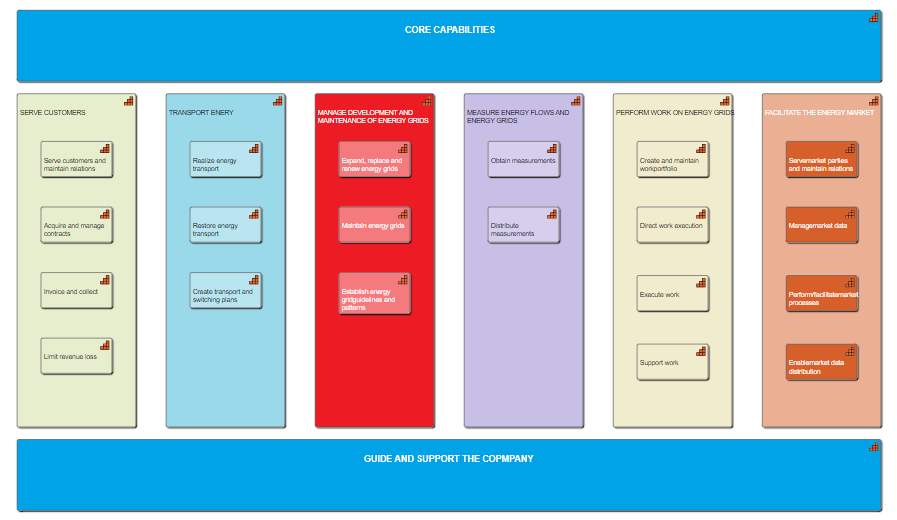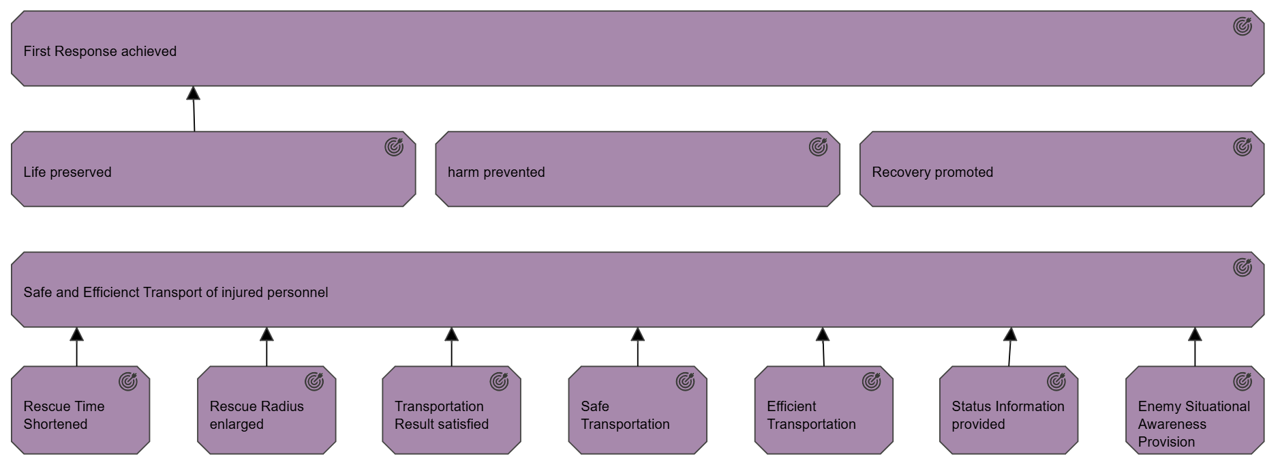Concerns: Strategy development
Purpose: Designing, deciding
Scope: Strategy
The strategy viewpoint allows the business architect to model a high-level, strategic overview of the strategies (courses of action) of the enterprise, the capabilities and resources supporting those, and the envisaged outcomes.

